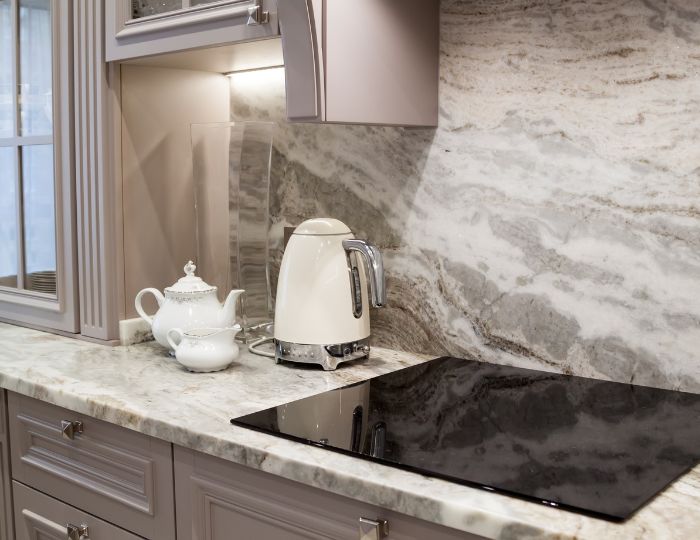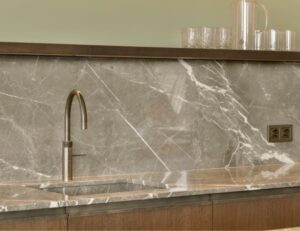Stone surfaces—whether countertops, floors, or tabletops—are highly valued for their natural beauty and timeless durability. However, many homeowners ask the same question: is sealing really necessary? While not every stone surface requires sealing, in most cases, sealing plays a crucial role in protecting your investment and ensuring your stone looks beautiful for years to come.
Why Stone Surfaces Are Prone to Damage
Natural stone, despite its strength, is porous by nature. Materials like marble, limestone, granite, and travertine all contain tiny pores that can absorb liquids, oils, and other substances. Over time, this can lead to staining, etching, and even weakening of the stone’s structure.
For example, an unsealed marble countertop can quickly absorb red wine, coffee, or cooking oils, leaving behind permanent stains. On the other hand, properly sealed surfaces act as a barrier, repelling moisture and contaminants so your stone stays pristine.
The Benefits of Sealing Stone Surfaces
Sealing is not just a precaution—it’s a proactive way to preserve and protect natural stone. Some of the key benefits include:
-
Stain Resistance: Sealed surfaces are much less likely to absorb liquids and oils, reducing the risk of unsightly stains.
-
Enhanced Durability: Sealing helps guard against scratches, etching, and surface damage caused by everyday use.
-
Easier Cleaning: When sealed, dirt and grime stay on the surface rather than sinking in, making maintenance simple.
-
Preservation of Beauty: A quality sealant can even enhance the natural color and veining of your stone, keeping it vibrant and polished.
Do All Stones Need Sealing?
Not all stone is created equal. Some stones, like granite, are denser and may need sealing less frequently, while more porous stones, such as marble or limestone, benefit greatly from regular sealing. A simple water test—placing a few drops of water on the surface—can help determine whether sealing is needed. If the water quickly darkens the stone, it’s time to reseal.
How Often Should You Reseal?
Sealing isn’t a one-time task; it requires upkeep. On average, most stone surfaces should be resealed every 1–3 years, depending on use and the type of stone. High-traffic areas, like kitchen countertops or entryway floors, may require more frequent attention.
Professional vs. DIY Sealing
While there are DIY sealants available, professional sealing ensures proper coverage and long-lasting results. Experts use commercial-grade products and techniques that provide superior protection compared to store-bought options. Professionals can also assess your stone’s condition and recommend the right care plan tailored to its type and level of use.
Conclusion: Protecting Your Investment
Sealing stone surfaces is not just necessary—it’s essential for maintaining their longevity and beauty. By sealing regularly and relying on professional care, you can avoid costly damage, preserve your stone’s natural appeal, and enjoy a surface that continues to shine year after year.
If your stone surfaces are looking dull, stained, or in need of sealing, don’t wait until the damage sets in. Contact our stone care experts today for professional sealing and restoration services that will protect and rejuvenate your stone.










